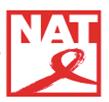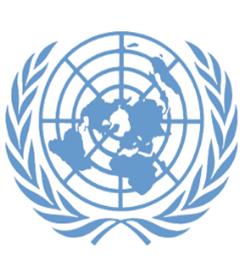HIV Patient Information & NHS Confidentiality Survey

Thank you for showing an interest in completing this survey about your understanding, opinion and experience of confidentiality in the NHS. This survey is being conducted by NAT (National AIDS Trust). The survey results will help us work to ensure your patient confidentiality is appropriately and safely respected in the NHS.
Please read the information below which explains a little bit more about the survey, how to take part and what to do if you have any questions or concerns.
WHO CAN TAKE PART IN THE SURVEY?
To take part you must be:
- Aged 16 or over
- Living with HIV
- Living in England
- Attending an HIV clinic for care
WHAT IS THE SURVEY ABOUT?
If you choose to take part in this survey, you will be asked a series of questions looking at what you understand about confidentiality and the sharing of your healthcare information in the NHS. You will also be asked to provide your opinion and share your experiences about confidentiality and how your healthcare information is shared.
WHO IS CONDUCTING THE SURVEY?
The survey is being conducted by NAT in association with the British HIV Association (BHIVA). NAT is the UK’s leading charity dedicated to transforming society’s response to HIV. We provide fresh thinking, expert advice and practical resources. We campaign for change.
NAT’s vision is a world in which people living with HIV are treated as equal citizens with respect, dignity and justice. We listen to people living with, and affected by, HIV and those who support them and we put the needs and rights of HIV positive people at the heart of everything we do.
HOW DO I TAKE PART AND HOW LONG WILL IT TAKE?
The instructions will guide you through the survey and make it clear how to respond to each question.
This survey should take you no longer than 15-20 minutes to complete.
This survey will not ask for you to identify yourself, therefore any information that you provide will be anonymous and it will not be possible to link it back to you.
If you decide to participate, you can stop at any point by closing the web page. If you open it again on the same computer, the survey will pick up where you left off. Once you have clicked 'done' at the end of the survey you will no longer be able to change your responses.
WHAT ARE THE BENEFITS OF TAKING PART?
The information you provide will help us identify whether people living with HIV need more information about how their healthcare information is shared and what their rights are. It will also help us to understand whether people living with HIV are concerned about the privacy of their healthcare information and what these concerns are. Your thoughts and opinions will really help NAT develop recommendations to ensure people with HIV are treated with dignity and respect within the NHS.
We also hope that the information provided in the survey is both informative and useful to you as well.
WHAT IF I HAVE ANY QUESTIONS?
If you have any questions or concerns, please contact info@nat.org.uk
To complete the survey please follow this link
HIV prevention news: England

Archive
Issue #14 - October 2013
- Preparing for National HIV Testing Week
- Who will take PrEP?
- Vaccine research
- Diagnosing acute HIV infection
- Female condoms
- Vaginal rings
- Gay men’s risk profiles
- Attitudes to treatment
- Other recent news headlines
- Case studies
- PrEP community statement
- African Health Promotion Summit
- IAPAC evidence summit
- African health and sex survey
- HIV prevention bulletin
- HIV Prevention England
- Editors' picks from other sources
For previous months archives please click this link
UNAIDS 2013 Global Report stresses need for countries to legalize gay sex


The Joint United Nations Program on HIV/AIDS (UNAIDS) has reported that most member states are well on their way to meeting their 2015 targets on HIV but stresses that member states must reach out to drug users and sex workers and decriminalize homosexuality if they are to fight the virus comprehensively.
The report finds that punitive laws and discriminatory actions are continuing to hamper national responses to HIV and concerted efforts are needed to address these persistent obstacles to the scale up of HIV services for people most in need.
‘National commitments to respond to the HIV epidemic among men who have sex with men lag behind those for other key populations,’ the report says.
‘Where data [is] collected, men who have sex with men typically share a disproportionate burden of HIV infection. In many countries, data on HIV prevalence among men who have sex with men [does] not exist. Countries need to undertake more concerted efforts to measure the extent of the epidemic among men who have sex with men while building comprehensive services that remove barriers to access.
‘Stigma, discrimination and oppressive legal environments in many settings discourage men who have sex with men from seeking HIV testing and appropriate, high-quality prevention, care and treatment services. National programs should endeavor to remove legal obstacles to practicing homosexuality, increase sensitivity to the health needs of men who have sex with men, improve access to health services and build programs to intensify HIV preventive behaviors in this population through improved access to condoms and lubricants and by creating a cultural norm of safer sex.
‘Programs should also consider using STI services targeted to men as a gateway to improve HIV prevention, treatment and care for men who have sex with men. At the same time, countries should seize the HIV prevention potential of antiretroviral therapy by accelerating scale-up of HIV treatment and taking steps to implement the 2013 WHO antiretroviral guidelines.’
New HIV infections globally were estimated at 2.3 million in 2012, a 33% reduction since 2001, while new infections among children have halved in that time.
UNAIDS also reports that AIDS-related deaths have dropped by 30% since their peak in 2005 as access to antiretroviral treatment expands.
By the end of 2012 9.7 million people in low-to-middle-income countries were on antiretroviral therapies - an increase of nearly 20% in just one year.
In 2011, UN Member States agreed to a 2015 target of reaching 15 million people with HIV treatment but the World Health Organization set new HIV treatment guidelines, expanding the total number of people estimated to be in need of treatment by more than 10 million.
UNAIDS executive director Michel Sidibé said this meant that member states had to do even more.
‘Not only can we meet the 2015 target of 15 million people on HIV treatment—we must also go beyond and have the vision and commitment to ensure no one is left behind,’ Sidibé said.
UNAIDS found that domestic spending on HIV has increased, accounting for 53% of global HIV resources in 2012 despite donor funds flattening off.
The total global resources available to tackle HIV in 2012 was estimated at US$ 18.9 billion, which is US$ 3-5 billion short of the US$ 22-24 billion estimated to be needed annually to contain the virus by 2015.
